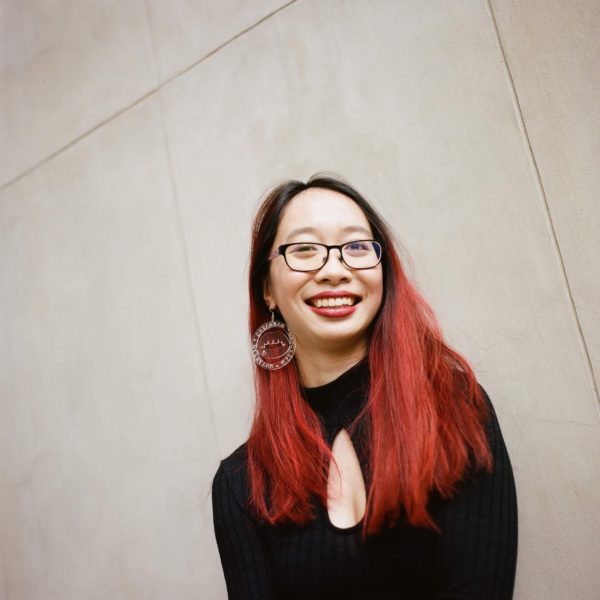25 October 2019
Meet the 2019 Deakin University Nonfiction Prize shortlist – Yen-Rong Wong

Yen-Rong Wong, 25, QLD
I can’t talk to my mum about sex
How did you begin writing?
I started writing in general because I loved reading. I wrote my first story about Hello Kitty and her friends when I was about four – I’m pretty sure it also included an illustration! My foray into nonfiction started through my blog and after a particular post about Lionel Shriver; before that I didn’t even know creative nonfiction was a thing – I thought nonfiction had to be wholly based on research.
Why do you write nonfiction?
I write nonfiction because it’s what comes naturally to me, but my main goal is to try and help others feel less alone. Even though my target audience is for other younger versions of myself, for young Asian Australian women, many of the themes that run through my work are universal. I write nonfiction because I think it’s a powerful vehicle for empathy and introspection – I know I learn something about myself and the world every time I read a good piece of nonfiction, and I hope others do too when they read my work.
Tell us a bit about your submission to the Deakin University Nonfiction Prize:
I think the real core of my piece is related to the power of language. Having and knowing a language means you can communicate with other people, and language often belies cultural values and mores as well. I’ve lived between Mandarin and English for as long as I can remember, and this piece explores the intricacies of learning and maintaining a pictorial, tonal language in a society where I’m surrounded by English, as well as the ways in which language differences and deficiencies have affected my relationship with my parents (specifically, my mother).
Why did you choose to write on this subject?
I’ve always found language fascinating, especially as someone who has grown up bilingual and skips between languages fluidly. I’m also really interested in silences – who is silenced and why, what do these silences mean about society in general, how do these silences affect the ways we interact with other people. There are so many things I can’t or won’t talk to my mum about, but sex and sexuality is probably the only topic I literally can’t talk about in Mandarin because I just don’t have the vocabulary and the language to do so – and even if I did google translate the words or phrases, there are so many nuances to language that you can only understand by using it and practising it, so I probably wouldn’t be able to string together a coherent sentence anyway.
What’s the best piece of writing advice you’ve ever received?
Don’t push yourself to be someone else, or to follow someone else’s writing routine. You know what works for you, and it’s okay to take breaks or to have periods of time where you aren’t writing. I’m still trying to apply this to my practice, learning to be not so hard on myself is always a work in progress!
Who are some of your favourite nonfiction writers?
Alice Pung, Fiona Wright, Durga Chew-Bose, Jia Tolentino, Jiayang Fan, Jessica Friedmann, Reni Eddo-Lodge



